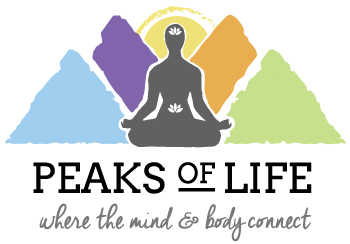Recently I celebrated my birthday. My first COVID birthday, that is. It was also my first birthday after losing my dad. It was strange. I have always enjoyed celebrating my birthday. Not in a big, I need to throw a party way. For me, it is the phone call, the text message, the social media shout-out wishing me a happy birthday – that I have always loved. But this year one phone call was missing. The one from my dad . . .
My day was mixed with celebrating my birthday and then feeling the loss of my dad, then celebrating my birthday, and then realizing that this will be the first year my dad wasn’t going to be calling. At first, I wasn’t sure how to act. Can I celebrate my birthday? Is it okay? But what about my dad? Now I am sad. Wait, it’s my birthday. Is it okay to be sad and then happy, to laugh and then cry?
YES! Of course, it is. I know that it is okay to cry AND it is okay to celebrate. It was my friend grief – showing up again. It was all good.
It got me thinking of how when we experience loss, whether it is a loved one, a relationship, a pet, a goal, a dream, etc., we are going to experience a year of “firsts.” First birthday, anniversary, holiday, etc., without them.
Some of these occasions are going to feel more difficult than others, depending on the loss. For example, my parents would have celebrated 59 years of marriage this month. I could feel the loss, the grief from my mom as she was experiencing her “first” anniversary without her husband.
It reminded me how grief is a very personal process and that there is no handbook to follow.
Here are some reminders about grief that I’ve shared in the past, but would like to share with you again:
- Grief is a normal part of life.
- There is no right or wrong, good or bad way to process YOUR grief.
- All of your emotions are OKAY. They are YOUR emotions. You do not need to justify, explain, or change them.
- Don’t minimize or hide your grief because it makes other people feel uncomfortable or because you “should be over it by now.”
- It will be painful, there is no way around that, but the pain will lessen over time. It doesn’t mean you have forgotten.
- Reach out to family and friends. Allow them to be there for you. It is also okay if there are days you want to grieve alone. Be honest with them.
- After a while, you will start to have moments of less sadness, less crying, of less heaviness. It does not mean you’ve finished grieving or that you no longer miss your loved one. It means that time has passed, you are moving through the grief.
- There is no set timeline for grief. Let go of any expectations of when you “should” no longer feel sad or upset about your loss. It is normal if you find that after some time you are feeling better and then something happens and you find yourself feeling sad, depressed again.
One of the most important things is to continue to move with and through your grief versus get stuck in it. Even though getting stuck for a while is not a “bad” thing, as long as you don’t get stuck forever, as long as you continue to give yourself permission to grieve.
Remember there is no clear-cut way to move through grief. Allow yourself to feel the feelings that come up, no matter when they come up. For example, you may be celebrating your birthday and then recall a memory you shared with your loved one that has passed, it is okay if you suddenly feel like crying.
We are also experiencing a year of “firsts” due to the global pandemic. We are not able to be with our loved ones on special occasions. We have had to postpone trips, vacations, celebrations, etc. Jobs have changed and or been lost. Many of us are experiencing grief due to how things are different this year. Allow yourself to grieve the changes, the loss, the uncomfortableness.
Even though we cannot anticipate or prepare for each occasion that we “might” find grief creeping in – we can continue to give ourselves permission to feel the grief, to sit with it, to be with it, and to move through it when we feel ready to.
“Grief is like the ocean; it comes on waves ebbing and flowing. Sometimes the water is calm, and sometimes it is overwhelming. All we can do is learn to swim.” Vicki Harrison

